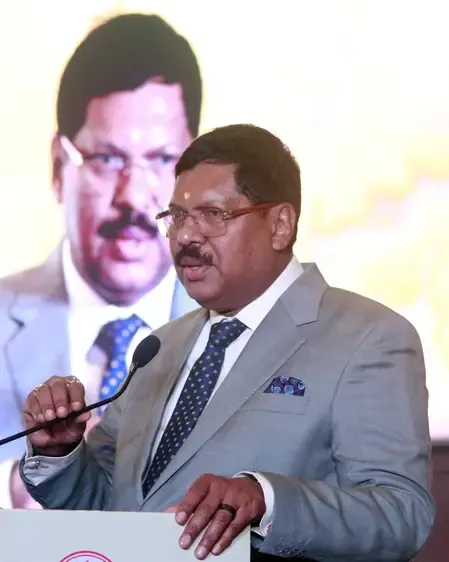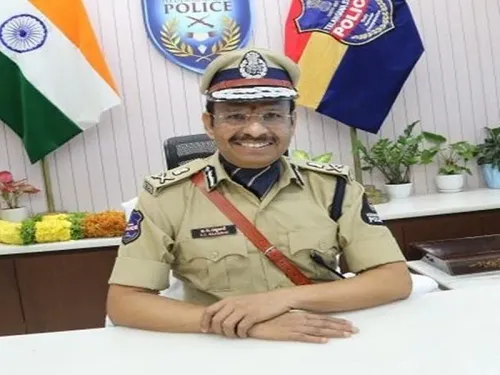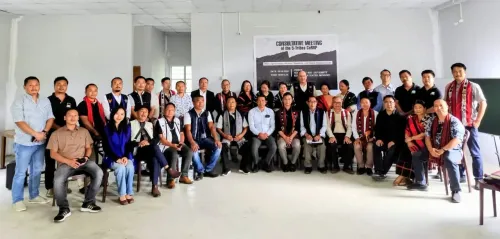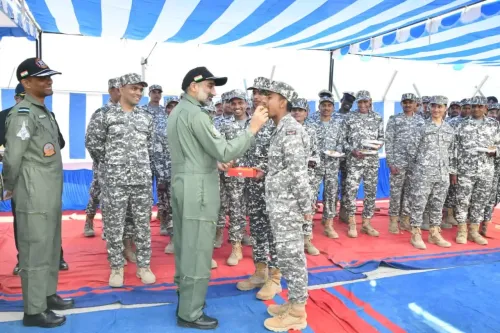How is CJ Gavai Highlighting the Judiciary's Evolving Role at the Nepal-India Judicial Dialogue?

Synopsis
Key Takeaways
- CJI Gavai emphasizes the judiciary's dual role.
- Importance of the Basic Structure Doctrine.
- Judiciary as a bridge between people and constitutional ideals.
- Recognition of emerging rights, including privacy and gender justice.
- Call for collaboration between India and Nepal’s judiciaries.
New Delhi, Sep 5 (NationPress) Chief Justice of India (CJI) B.R. Gavai, during his speech at the Nepal-India Judicial Dialogue 2025 held in Kathmandu on Friday, highlighted the judiciary's crucial dual function as both "a guardian and a catalyst" – protecting the foundational elements of society while also promoting reforms that enhance the moral and ethical framework of a nation.
In his discussion on "The Evolving Role of the Judiciary with a focus on jurisprudential progress and justice sector reforms implemented by the Supreme Court of India", CJI Gavai pointed out how courts have progressed beyond mere "black-letter law" to engage with the deeper intentions and repercussions of the law.
"In both nations, the judiciary acts as a bridge between the aspirations of citizens and the principles enshrined in the Constitution," he stated.
He underlined the significance of landmark constitutional principles, reiterating the lasting relevance of the basic structure doctrine.
Reflecting on the 2015 decision that invalidated the National Judicial Appointments Commission (NJAC) Act, the CJI remarked: "The doctrine of the Basic Structure has now become a well-established tenet of Indian constitutional law. Its relevance has crossed national borders, as India's rulings on this doctrine have been referenced and relied upon by the constitutional courts of various other nations."
CJI Gavai also acknowledged the Supreme Court’s proactive acknowledgment of emerging rights, including the right to privacy, reproductive rights, and disability rights.
Commenting on the 2018 Common Cause ruling concerning passive euthanasia, he stated: "An individual’s personal autonomy is fundamental to determining the trajectory of their own life."
On the issues of gender justice and substantial equality, he mentioned recent judgments like the Arshnoor Kaur case, where the Supreme Court mandated that the examination for the Judge Advocate General (JAG) position must be executed by the Indian Army in a manner that does not limit the number of women candidates.
"The practice of imposing a ceiling on the recruitment of female candidates perpetuates the status quo," he cited from the ruling.
CJI Gavai also addressed environmental law and electoral reforms, emphasizing "the Constitution grants a fundamental right against the detrimental impacts of climate change within Article 21".
He highlighted the Supreme Court’s 2024 ruling that deemed the Electoral Bond Scheme – which permitted 'anonymous donations to political parties' – unconstitutional for infringing upon citizens’ right to information.
He commended the Supreme Court of Nepal for its progressive stances on gender justice, privacy, environmental conservation, and the rights of indigenous peoples.
"Therefore, I wish to express my profound appreciation for the advancements made by the Supreme Court of Nepal," he remarked.
CJI Gavai also advocated for closer cooperation between the judiciaries of India and Nepal. "In today's interconnected world, judiciaries are increasingly linked, making it crucial for them to share and learn from each other's experiences."









